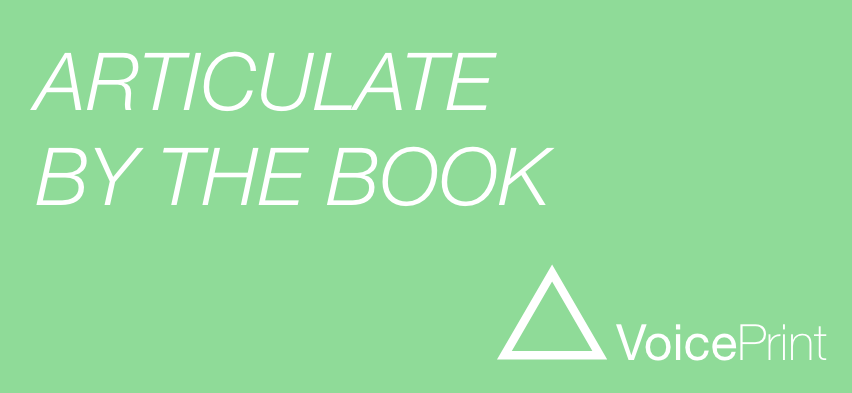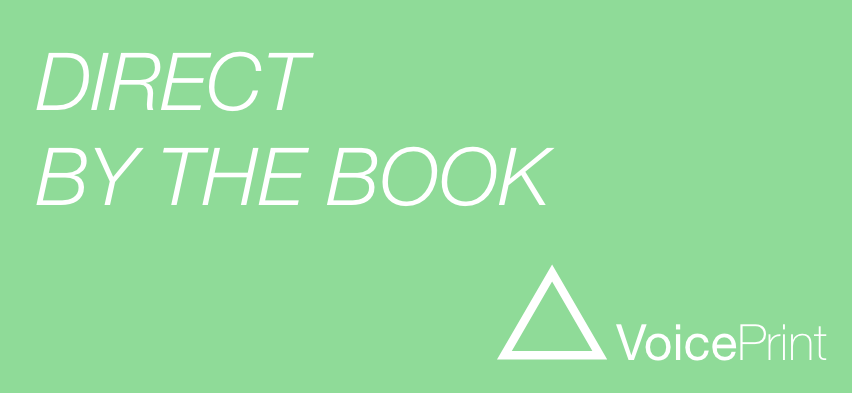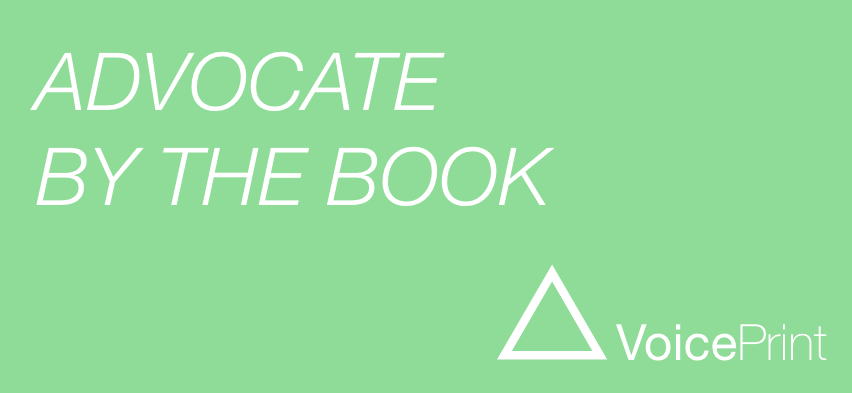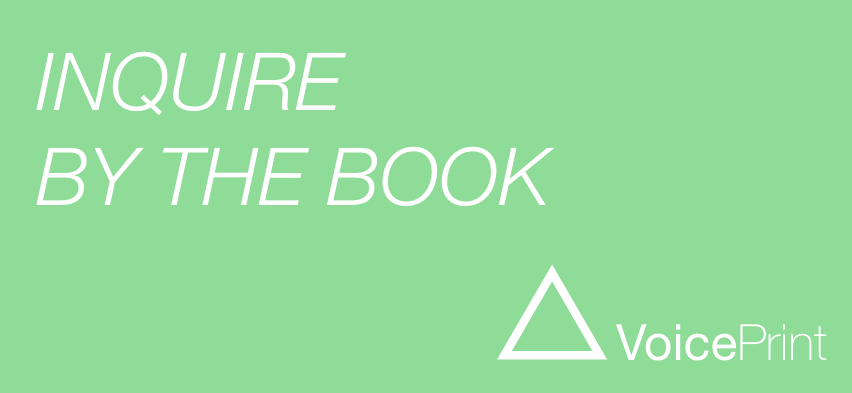
This is the first in a new series of blogs. Each of the pieces in this ’By the Book’ series focuses on one of the nine voices and on one book which, in my view, is very useful for understanding that voice and for using it well in practice.
Each of these blogs is simply a short appreciation. It is not intended to be either a comprehensive or a critical review. The aim is to highlight some features of the book’s relevance and to encourage you to read and think about it for yourself.
‘Humble Inquiry: the gentle art of asking instead of telling’ was written by social psychologist and former MIT Sloan School of Management Professor Edgar Schein towards the end of a long and distinguished career as teacher, administrator, organisational consultant and coach. It’s a short book, little more than one hundred pages, and well worth the couple of hours that is all it takes to read.
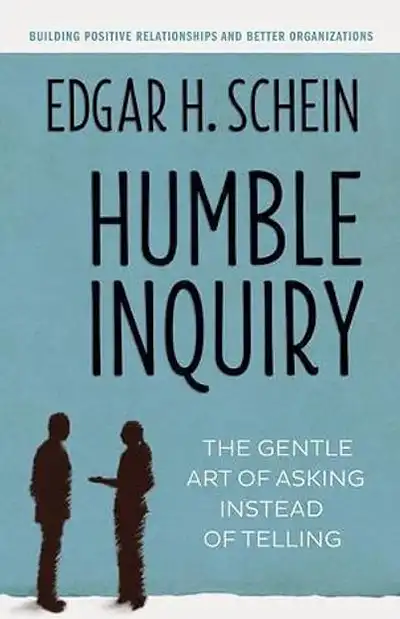
Getting straight to the point, the rationale for the book, and for the Inquiry voice too, is set out on the first page. …’In an increasingly complex, interdependent and culturally diverse world we cannot hope to understand and work with people from different occupational, professional and national cultures if we do not know how to ask questions and build relationships that are based on mutual respect and the recognition that others know things that we may need to know in order to get a job done.’ (pages 1-2)
What Schein calls Humble Inquiry is very close to what VoicePrint identifies as the Inquire voice.
‘Humble Inquiry is the fine art of drawing someone out, of asking questions to which you do not already have the answer, of building a relationship based on curiosity and interest in the other person.’ (p.2)
I like Schein’s recognition that defining (Humble) Inquiry and its purpose is the easy bit: its implementation is more difficult. So, after Chapter 2 has provided eight short but diverse case illustrations of humble inquiry in action, with personal, organisational, formal and informal examples, the bulk of the book is devoted to clarifying these difficulties and how to overcome them.
Given that the most valuable form of development can sometimes be to stop doing things that are unhelpful, the next four chapters are particularly useful. Each in turn highlights and examines particular factors which tend to inhibit the effective use of Inquiry.
First…
The first of these factors are forms of asking that serve somewhat different purposes, and do not have the same potential for discovery and learning or the development of relationships and trust. As Schein points out in a phrase that will resonate for VoicePrint users, who appreciate the distinctions to be made between one voice and another, ‘We have a tendency to think of asking or telling as just simple alternatives when, in fact, there are many forms of each with different consequences.’ (p.39)
Many utterances that sound ostensibly like questions are actually forms of persuasion.
Humble inquiry does not influence either the content of what the person being asked has to say or the form in which it is said. Other forms of questioning, with less humility, ‘steer the other’s mental process’ by probing in particular directions, such as feelings and reactions, causes and motives. Alternatively, they go even further and seek to shape the content of the other’s thinking through leading or rhetorical questions that are in effect tacit opinions or advice.
Secondly…
The second set of inhibitors comes from the zeitgeist, one that favours telling over asking. In environments which value individualism, personal strength and visible achievement, ‘to ask is to reveal ignorance and weakness.’ (p.58) If it feels socially undesirable to ask, people discount the value and importance of reciprocal co-operation where both parties win.
Schein acknowledges that this observation derives specifically from his own American culture. This does not invalidate its broader applicability across the western world and for many of those now employed in industrial and post-industrial economies. Wherever the possession of know-how, expertise, assertiveness and decisiveness are particularly esteemed, or regarded as indicative of capability, then open-minded inquiry and respect for the views of others, and the mutual benefits that might be obtained from them, are in danger of being subordinated or lost.
Thirdly…
The third set of inhibitors are cultural. More specifically, they are the diverging rules that different national, organisational or occupational cultures have when it comes to the deferences that are expected from those lower in their hierarchies, and the demeanours that are expected from those in higher positions. Status, rank and role boundaries can all serve to constrain humble, or authentically open, inquiry.
The book gives some classic examples of where those in more senior positions failed to consult or listen to their juniors, and equally where those with lower rank, status or role failed to speak up or make themselves heard. The examples include the hospital operating theatre, the airline flight deck and the well-known Challenger space shuttle disaster. Schein himself does not use the now popular VUCA acronym to describe the world in which we find ourselves, a world that can be volatile, uncertain, complex and ambiguous. But he is clearly attuned to these contextual conditions, ones which require recognition of our inter-dependence and make humble inquiry on the part of leaders and managers so vital.
Fourthly…
The final set of factors inhibiting humble, open inquiry are intra-personal. They are the cognitive and emotional biases that, often sub-consciously, shape an individual’s self-talk. As Schein notes, ‘We do not think and talk about what we see; we see what we are able to think and talk about.’ (p.91) In VoicePrint terms, the prevailing pattern of the nine voices in our self-profile has a powerful effect in filtering what we notice and pay attention to. The disposition of our internal voices, both in the general course of events, and especially perhaps when we are feeling negatively pressured and anxious, is a source of perceptual distortion, which limits the effectiveness of our voices. In this respect humble inquiry is a practice that is particularly useful for self-monitoring and self management. It’s a way of maintaining in-the-moment awareness of our own reactions and judgements; inquiry is not just for use in interactions with others to obtain their inputs.
Finally…
The final chapter focuses specifically on how to cultivate the practice of humble inquiry, although suggestions are provided throughout the book. It also practises what it advocates by posing a set of ‘questions for the reader’ at the end of each of the preceding chapters.
The purpose of this appreciation too is to encourage you to engage with the book and its ideas for yourself, so I’m not going to list Schein’s suggestions. Instead, let me hopefully pique your interest by citing just three of his remarks, each of which is in itself, I think, usefully thought-and action-provoking.
- Conversations always occur within a set of cultural rules. (p.41)
- The demeanour of the higher status person should always be to build status, to give face. Only by making the other feel psychologically safe can you hope to get the information and help you need. (p.64)
- Asking temporarily empowers the other person in the conversation and temporarily makes me vulnerable…If I want to build a relationship, I have to begin by investing something in it. Humble Inquiry is investing by spending some of my attention up front. (p.9)
Humble Inquiry: the gentle art of asking instead of telling by Edgar H.Schein is published by Berrett-Koehler (2013)
ISBN 978-1-60994-981-5
Ready for a conversation?
